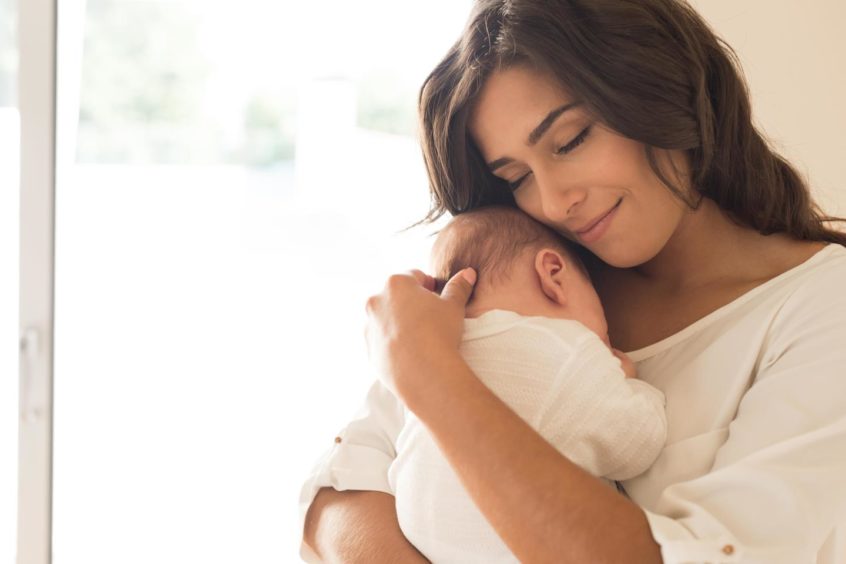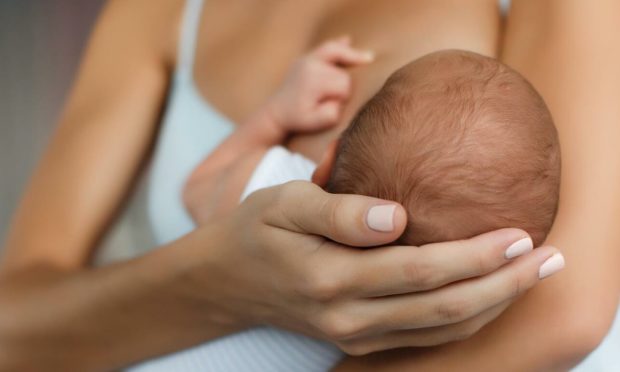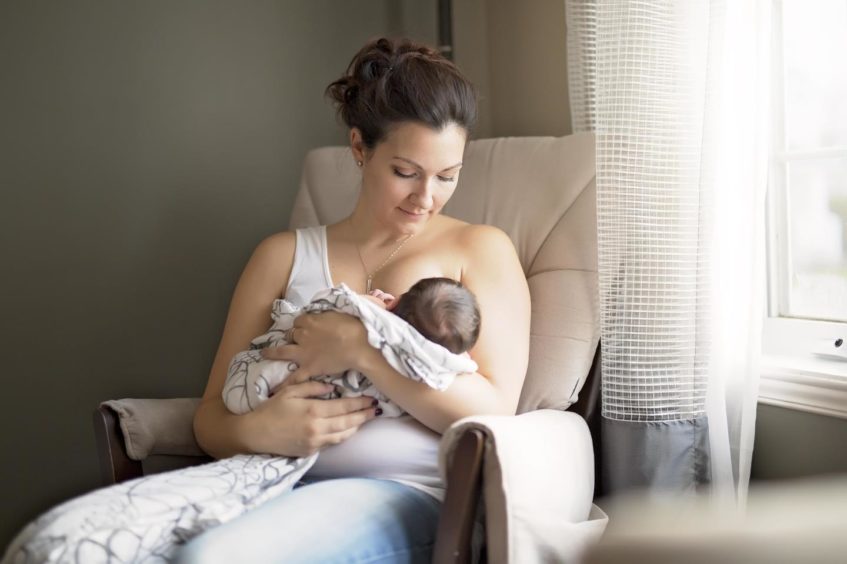Can you have a Covid vaccine if you’re breastfeeding? Do breast implants affect the ability to feed? And can you get pregnant if you’re feeding your baby?
Decisions around breastfeeding are personal so getting the most accurate information can be key in deciding what’s right for you and your baby.
Our expert Janet Dalzell, infant nutrition coordinator at NHS Tayside and UNICEF UK professional lead for Scotland, unpacks the top myths surrounding breastfeeding.
To mark Breastfeeding Awareness Week, we asked Janet about breastfeeding misconceptions, to get the truth behind the myths.
Breast and nipple size and shape influence ability to breastfeed
“Women’s breasts come in all shapes and sizes and have done so since the beginning of mankind – it hasn’t gotten in the way of babies being able to breastfeed,” says Janet.
“Babies don’t know what kind of breast their mum has got before they’re born.
“If you give babies time to familiarise themselves with mum’s breasts, with a healthcare professional who can provide support with position attachment and alternative ways, most babies will be able to position and attach with that additional support.
“But that’s the same no matter what – every mum and baby have to learn how to feed.”
Breastfeeding always hurts
“If a baby is positioned and attached effectively, there shouldn’t be any pain,” Janet explains.
“During the process where a mum is learning to breastfeed her baby, sometimes there may not be optimal position attachment which has led to a grazed or damaged nipple.
“If this has happened, it will be painful. But when you speak to mums who are experienced in breastfeeding, the majority of them are pain-free.”
You don’t get your period and can’t get pregnant while breastfeeding
“It all depends on how you’re breastfeeding. If you’re exclusively breastfeeding, that should prevent ovulation.
“If you’re introducing formula milk alongside breast milk, there’s potential that a mother could become pregnant.
“It’s not a form of contraception we would use in Scotland,” Janet continues.
“Once you start introducing other foods to your baby, usually around six months, your baby will naturally reduce the amount of milk it takes and increase the amount of food, and that’s usually when women begin to ovulate again.”
You can’t breastfeed if you’ve had breast surgery or implants
“This is based on an individual assessment,” says Janet.
“For example, if a mother has had breast reduction surgery, the surgeons do have a discussion with her about the impact on future breastfeeding success.
“Surgeons are generally very careful about keeping the nipple and ductal system in tact.
“For implants, again it is based on each individual case.
“If they’re not going to hinder the flow of the milk and a mum is supported effectively by a healthcare professional, they would be able to go on and breastfeed.”
You can’t drink alcohol while breastfeeding
“We recommend not smoking or drinking while breastfeeding.
“However, you can, as long as it’s within the daily allowance intake. A glass of wine would be OK but anything taking you over your daily units would not be.
“You can work around alcohol and breastfeeding – it’s not an absolute ‘no’. It’s a case of making a judgement.

“For example, if you’re having a glass of wine and you’re baby won’t need a feed for the next four hours, that glass of wine will have been processed through the liver by the time it comes to the next feed.
“So that woman would be safe to go on and breastfeed.”
Can you breastfeed after getting the Covid-19 vaccine?
The World Health Organization (WHO) and Joint Committee on Vaccination and Immunisation (JCVI) recommend any suitable coronavirus vaccine can be given to those who are breastfeeding.
The NHS also advises you can continue breastfeeding after receiving the vaccine.

